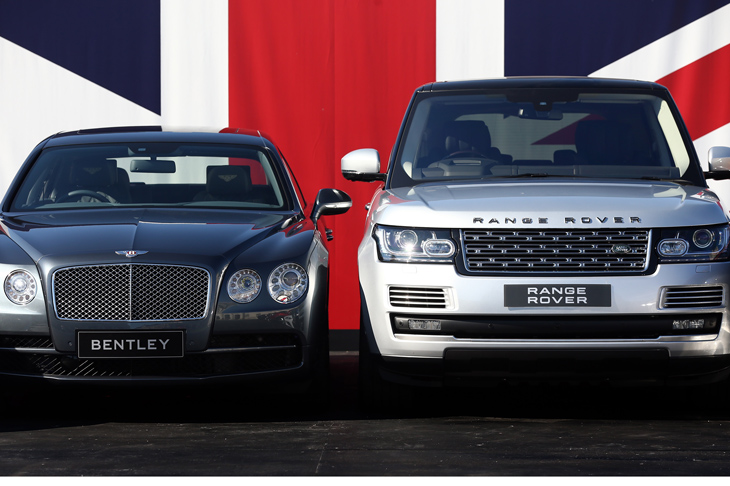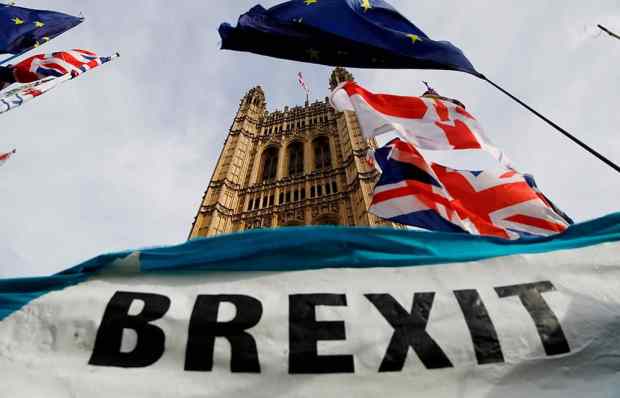The voice of business has been all but silent in the Brexit debate ever since former Marks & Spencer boss Stuart Rose made such a hash of trying to lead the pre-referendum ‘Britain Stronger in Europe campaign’. Now suddenly there’s a business cacophony: Airbus, BMW, Siemens and the heads of the CBI, the Institute of Directors, the Federation of Small Businesses, the British Chambers of Commerce and the Engineering Employers’ Federation, all saying roughly the same thing: never mind the politics, all we ever asked for is clarity, preferably accompanied by ‘frictionless trade’. But this incompetent and dysfunctional negotiation is creating serious uncertainty and leaving unresolved the issues, starting with customs arrangements, that you should have consulted us about but never did. And now it’s almost certainly too late.
To which Brexiteers chant, ‘They would say that, wouldn’t they?’ And in the case of Airbus, the ultimate EU industrial flag carrier, let’s be honest — yes, they probably would. And yes, the CBI wanted us to join the euro and struggles to shake off a reputation for speaking first for the corporate fat cats. But if you want an undeniable indicator, listen carefully to the Society of Motor Manufacturers and Traders. Investment in the UK automotive industry for the first half of this year, at £347 million, was just half what it was in the first half of 2017. SMMT spokesman Mike Hawes speaks of ‘growing frustration’ and a ‘current position, with conflicting messages and red lines’ that goes directly against the interests of his world-class sector, which thrived on membership of the single market and customs union.
They’re not making this stuff up, they’re really not. I’ve said before that we’d be
wiser to accept that Brexit will most likely make us marginally poorer, while clinging to the hope that it will make us marginally happier. It would also help if we stopped accusing business of lying — because it is the ingenuity of business that we’ll rely upon to find a new path to prosperity through the chaos wrought by politicians.
Boris’s new slogan
On which topic did the Foreign Secretary really mutter ‘Fuck business’ in response to warnings about the impact of a bad Brexit on the future of UK manufacturing? I’m proud to have been appointed business editor of this magazine by Boris, but I’d have to say that the pithy phrase allegedly overheard at a Foreign Office party would have been a fair summary of our former editor’s level of interest in issues affecting business in the days when I was pitching pieces to him. And as a concise summary of what he and the rest of Theresa May’s fractious crew are doing to the prospects for UK companies and inward investment, it would have made a more truthful slogan on the side of the Leave bus than that suggestion of £350 million a week for the NHS.
The bank that partied
The crash of Anglo Irish Bank — whose former chief executive David Drumm has gone down for a six-year stretch, having been found guilty of conspiracy to defraud and false accounting — is truly a cautionary tale. Hard to believe that in January 2007 the management consultancy Oliver Wyman named Anglo Irish ‘the best bank in the world’ on the basis of a twentyfold increase in the value of its shares since 2000 and an annualised 38 per cent growth in business lending. No one seemed to have noticed that this spectacular performance was based on high-risk loans to a narrow concentration of borrowers all chasing Ireland’s ‘Celtic Tiger’ real estate boom. Even when the financial crisis was in full swing in September 2008, Drumm was sending colleagues a message that ended ‘This is Anglo so there’s only one thing to do — party!’
Soon the bank was in terminal trouble, and Drumm resorted to what has now been judged major fraud in an attempt to disguise its crippled balance sheet. Afterwards, rather than face the music, he fled to the US, whence he eventually had to be extradited, so I gather there’s not much sympathy for him in Dublin. But there’s still a grain of admiration for his chutzpah on the matter of the multibillion bailout that effectively nationalised Anglo Irish in December 2008. In the now-notorious ‘Anglo Tapes’, he was recorded telling a colleague that his approach to central bank negotiators was: ‘We need the moolah, you have it, so you’re going to give it to us and when would that be?… [Otherwise,] if you want the fucking keys now, I can give them to you.’ You might even think Drumm’s was a more straightforward approach than that of a UK bank I hardly need name: ‘Oh no, we don’t need your money, Chancellor, because we can raise capital on unbelievable terms from our friends in the Gulf…’
LNER revived
I wonder what Sir Nigel Gresley thinks of the adoption of LNER as the name of the state-run operator that took over Virgin Trains’ failed north-east mainline franchise this week. Chief mechanical engineer of the London and North Eastern Railway from its formation in 1923 until his death in 1941, Britain’s greatest 20th-century railwayman now stands — as a bronze statue by Hazel Reeves — just outside the ticket office at King’s Cross. If he looks worried, it may be because he has to watch so many stressed travellers trying to comprehend the baffling automated ticket machines; or more likely because he recalls that the original LNER, despite its stylish image and his magnificent engines, never made a profit in its 25 years of existence before nationalisation in 1948. That was due to a combination of debt inherited from predecessor companies, constant demand for capital investment and war. But it’s a reminder that even the best railway companies struggle to achieve commercial viability. No doubt — if we still have Conservative governments — a succession of private-sector franchisees will follow this stopgap LNER revival; but Gresley’s statue will outlive them all.
Got something to add? Join the discussion and comment below.
Get 10 issues for just $10
Subscribe to The Spectator Australia today for the next 10 magazine issues, plus full online access, for just $10.
You might disagree with half of it, but you’ll enjoy reading all of it. Try your first month for free, then just $2 a week for the remainder of your first year.















Comments
Don't miss out
Join the conversation with other Spectator Australia readers. Subscribe to leave a comment.
SUBSCRIBEAlready a subscriber? Log in